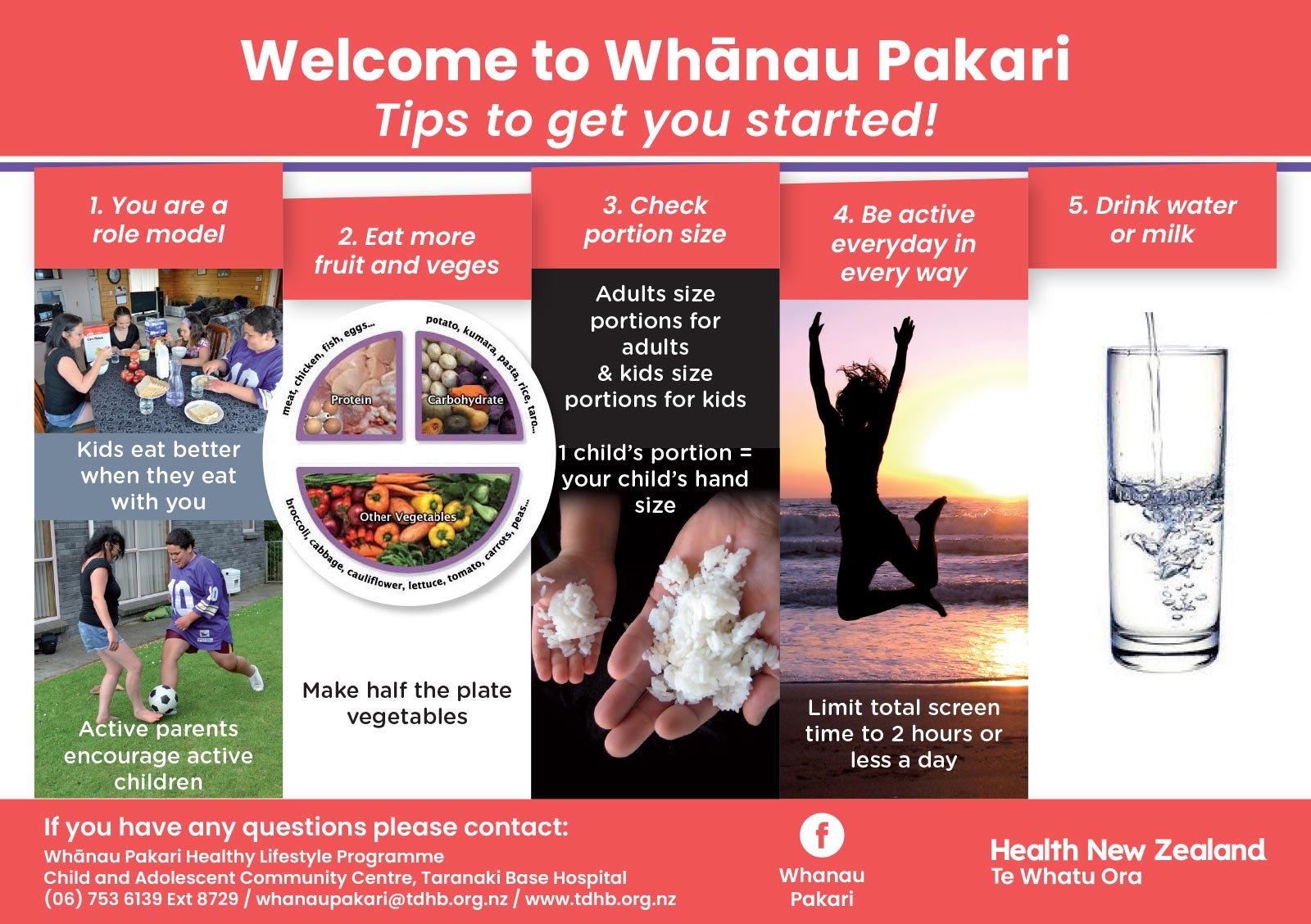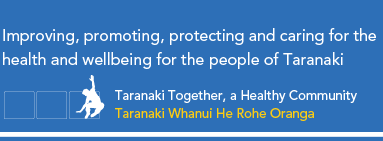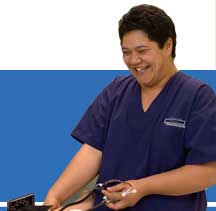What is Whānau Pakari?
It’s a community-based, family-centred assessment and intervention programme for 4-16 year olds (inclusive) wanting to overcome weight issues. Whānau Pakari uses a team of health professionals to support the child and whānau. The name means: “Healthy self-assured whānau that are fully active.”
It evolved from a need to create a weight issue intervention service for children and adolescents in Taranaki, given the alarming rise in the region.
Who is Whānau Pakari run by?
Health NZ | Te Whatu Ora Taranaki multidisciplinary team deliver the service.
For those interested in finding out more:
Referrals: Healthy lifestyles co-ordinator, whanaupakari@tdhb.org.nz or phone on: (06) 753 6139 Extn 8729, mobile: 027 217 9258
What does Whānau Pakari hope to achieve?
Persistent healthy lifestyle change for the whānau we work with, in a non-judgemental, respectful and compassionate environment.
What sort of support is provided to children and their whānau once they are on the programme?
- Medical/growth checks 6mthly from the healthy lifestyles coordinator
- One to one family support and group sessions
- Physical fitness assessments and fun physical activity sessions
- Cooking sessions, virtual supermarket tours
- Input from dietitian, psychologist, physical activity coordinator and healthy lifestyles co-ordinator, with paediatrician oversight
Where is the programme being run?
The programme is run across Taranaki: 6 months of fun weekly sessions and 6-monthly home-visits for 12 months. We’ve had more than 1400 referrals since January 2012, an overwhelming community response compared with most programmes.
What makes Whānau Pakari appeal to families?
- It is community based – the assessments happen in the home
- It is a non-judgemental, non-stigmatising approach – weight loss, diets, obesity are not the focus of the programme, rather persistent healthy lifestyle change
- It “demedicalises” obesity (removing hospital visits) – but medical support/oversight remains
- It aims to be accessible and appropriate for those over-represented in obesity statistics, being offered in the community region-wide
- It is a family journey - involving the whole whānau to support the child/teen
- It is linked to research so is constantly evolving based on findings and participant feedback
How does the programme reach Tamariki, rangatahi and their whānau/family?
We use home visits to make the programme accessible across the province – this has led to a 42% participation rate from Māori. The programme engages with Māori health providers and stakeholders.
How do children/whānau get onto the Whānau Pakari programme?
There are no barriers to referral – these can be made by general practitioners, practice nurses, paediatricians, public health nurses, kaiāwhina, Māori health workers, Whānau Ora navigators, other Māori health providers, B4 school checks co-ordinators, dietitians, well child services and youth workers. We also take self-referrals.
Why was Whānau Pakari developed?
There was no comprehensive service addressing obesity for young people in the region. This programme is community based and run by Health NZ.
The Whānau Pakari team
- paediatrician
- healthy lifestyles co-ordinators
- health development/physical activity advisor
- psychologist
- dietitian.
What are the potential impacts of this intervention?
There is no service as comprehensive in NZ for addressing weight issues in young people. The approach taken by the Whānau Pakari team is grounded in clinical experience and informed by research.
The information we collect is used by the multidisciplinary team to plan our care for each whānau. We also use this information to ensure we are offering an effective service and to guide improvements. The outcomes of our service are sometimes shared with other health care teams and have been published in research journals. This is done in accordance with the organisation’s policies and guidelines around the collection, storage, use and sharing of information and personal details are never disclosed.
Does Whānau Pakari work?
We have achieved increased referrals and increased participation from those most over-represented by obesity statistics (namely Māori and those from most deprived households.) 12-month outcome data from the clinical trial showed, on average, modest reductions in weight status by 12 months, but also sustained improvements in cardiovascular fitness and quality of life. For those that attend more than 70% of the high intensity sessions, the reductions in weight status were doubled - attendance was key to outcome. The programme has been shown to be more cost effective when compared with the conventional model of care, reaching far more participants and families.
Facebook:
Whānau Pakari has a Facebook page where lifestyle tips/links and advice is posted weekly.

Activity and Nutrition Aotearoa
Last updated: Thursday, July 27, 2023



